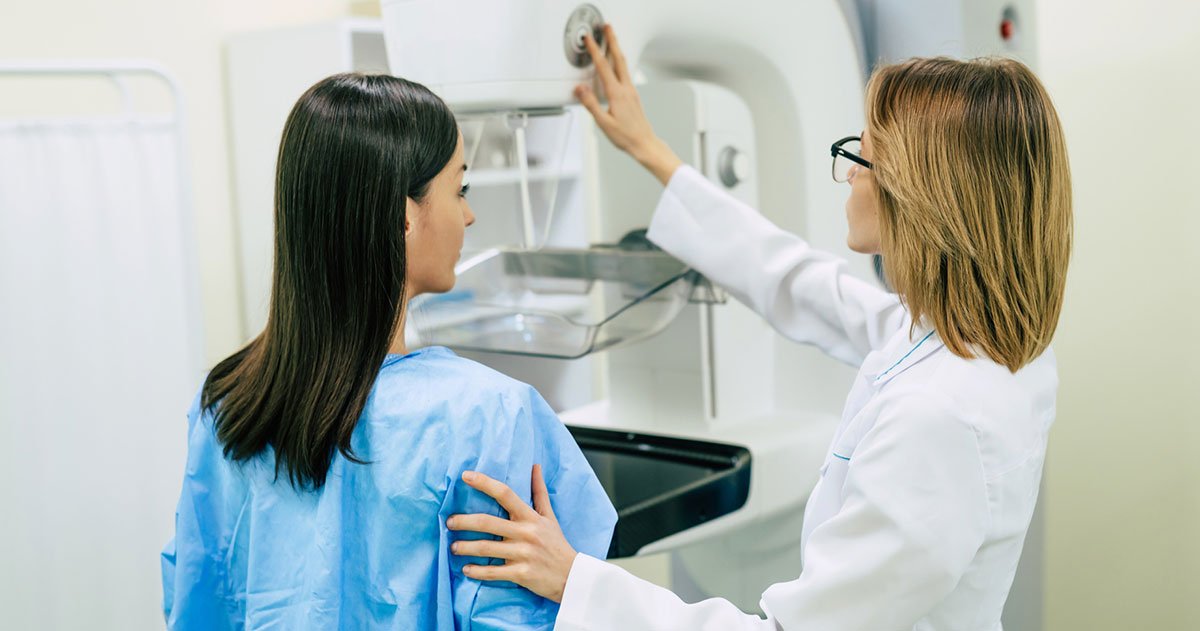Table of Contents
The Benefits of Regular Health Screenings for Women of All Ages

Health screenings are an essential component of preventive healthcare. These screenings allow individuals to detect health issues before they become severe, potentially preventing life-threatening diseases and chronic conditions. For women, routine screenings such as mammograms, Pap smears, cholesterol tests, and others are crucial tools in preventing or managing health conditions, detecting diseases in the early stages, and promoting overall well-being.
Regular health screenings save lives. They offer an opportunity to intervene early in the progression of diseases like cancer, heart disease, diabetes, and other chronic conditions. For women, these screenings are vital throughout every stage of their lives—ensuring that health issues are addressed before they reach an advanced stage.
Health is an ever-evolving journey, and for women, it’s important to stay proactive in understanding what screenings are necessary at different stages. By maintaining a vigilant approach to healthcare, women can ensure the early detection of conditions that might otherwise go unnoticed until they become serious. This approach not only protects physical well-being but also provides peace of mind.
In this article, we will explore the importance of health screenings for women of all ages, the specific screenings recommended at different life stages, and the benefits these screenings offer in ensuring long-term wellness. From your 20s to your 70s and beyond, each stage in life comes with its own set of screenings that play a pivotal role in health maintenance and disease prevention.
Why Regular Health Screenings Are Essential for Women

Routine health screenings form the backbone of preventive healthcare for women. Unlike reactive medical care, which typically addresses health problems only once symptoms appear, health screenings proactively assess potential health risks—even in the absence of visible signs or symptoms. The key benefit here is the ability to detect health issues in their earliest stages, often before they become symptomatic or cause significant damage.
The Importance of Early Detection
Early detection is one of the most significant advantages of regular health screenings. Health conditions such as breast cancer, cervical cancer, and diabetes often develop gradually, without noticeable symptoms in the early stages. If caught early, these conditions are far easier to treat and manage. The earlier a condition is detected, the more treatment options are available, and the chances of successful recovery increase.
For instance, breast cancer caught during the early stages through regular mammograms has a significantly higher survival rate compared to cases diagnosed after the cancer has spread. Similarly, high cholesterol or elevated blood pressure, which may not present symptoms, can be detected early, allowing women to make lifestyle changes or take medications to reduce the risk of heart disease or stroke.
The role of early detection is pivotal—routine screenings give women the chance to address health risks proactively. Early interventions reduce the severity of health problems, often preventing complications from chronic diseases, and promoting a healthier life as they age.
Recommended Health Screenings for Women at Different Life Stages

The need for health screenings evolves as women age, with certain conditions becoming more prevalent at different life stages. From the age of 21 through the 70s and beyond, the screenings recommended for women shift according to their changing health risks, family history, and lifestyle factors. Here’s an overview of the screenings women should undergo at different stages of life:
1. Early Adulthood (20s and 30s)
In early adulthood, health screenings primarily focus on preventing the onset of chronic conditions, detecting early-stage cancers, and ensuring optimal overall health. Women in their 20s and 30s should focus on cancer screenings, heart health, and skin health.
Pap Smear (Cervical Cancer Screening)
One of the first screenings women should begin receiving is a Pap smear to screen for cervical cancer. The American Cancer Society recommends starting Pap smears at age 21, and then repeating them every three years. Starting at age 30, women may have the option to combine the Pap smear with an HPV test, which screens for the virus responsible for most cervical cancers. This combined screening should be done every five years, depending on health history and risk factors.
For women who have risk factors such as a family history of cervical cancer or a positive HPV test, more frequent screening may be necessary. Regular screenings help detect abnormal cervical cells before they become cancerous, making early intervention more effective. For more information on Pap smears, visit Mayo Clinic.
Cholesterol Screening
Cholesterol levels are an important indicator of heart health, but high cholesterol typically doesn’t produce any symptoms. Women in their 20s and 30s should begin having their cholesterol checked at least once every four to six years. Women with risk factors such as obesity, a family history of heart disease, or diabetes should undergo more frequent screenings. High cholesterol can lead to plaque buildup in the arteries, increasing the risk of cardiovascular diseases, including heart attacks and strokes. Regular cholesterol checks allow for early interventions, such as diet changes or medication.
Skin Cancer Screening
Skin cancer is the most common form of cancer in the United States, and women with fair skin, a history of sun exposure, or a family history of skin cancer are at a higher risk. Regular skin exams are essential for early detection. Women in their 20s and 30s should conduct self-checks for abnormal moles and changes in existing moles. Additionally, annual visits to a dermatologist for a professional skin exam are recommended, especially for those with a history of sunburns or tanning bed use.
Skin cancer, when caught early, can often be treated effectively. Early detection leads to less invasive treatments, a higher survival rate, and the preservation of skin health.
2. Midlife (40s and 50s)
As women move into their 40s and 50s, they become more susceptible to chronic conditions such as heart disease, breast cancer, and diabetes. Regular screenings during this phase are critical for preventing long-term health complications and ensuring women’s health is optimized as they age.
Mammograms (Breast Cancer Screening)
Breast cancer remains one of the most common cancers among women, making mammograms a vital part of a woman’s healthcare routine. Starting at age 40, women should begin annual mammograms. Early detection of breast cancer through mammograms significantly improves survival rates and reduces the need for aggressive treatments. If a woman has a family history of breast cancer or other risk factors, earlier and more frequent mammograms may be recommended.
Blood Pressure and Diabetes Screening
High blood pressure (hypertension) and diabetes are common conditions in women during their 40s and 50s. Regular blood pressure checks are crucial, as high blood pressure can damage vital organs like the heart and kidneys. Women in their 40s should have their blood pressure checked at least once every two years.
In addition to blood pressure, glucose levels should be monitored, especially for women with a family history of diabetes or those who are overweight. Early detection of diabetes allows for lifestyle changes, including a healthier diet, weight management, and medication to prevent complications such as heart disease, kidney failure, and nerve damage.
Colon Cancer Screening
Colon cancer screening typically begins at age 45 for most women, as the risk of colon cancer increases with age. Colonoscopies, which involve a thorough examination of the colon, are recommended every 10 years. Other methods like stool-based tests may also be used for screening. Early detection of colon cancer through these screenings can help remove precancerous polyps, preventing cancer from developing. By getting regular screenings, women significantly reduce the risk of colon cancer and improve long-term survival.
Cholesterol and Heart Disease Risk Factors
Women over the age of 40 should undergo more frequent cholesterol screenings. The lipid profile includes measuring levels of LDL (“bad” cholesterol), HDL (“good” cholesterol), and triglycerides, which are essential in assessing heart disease risk. High levels of LDL and low levels of HDL cholesterol are major contributors to heart disease. Regular cholesterol tests, combined with other screenings for heart disease risk, help women manage cardiovascular health effectively.
3. Postmenopausal Years (60s and Beyond)
As women enter their 60s and beyond, the focus shifts to maintaining overall health, particularly regarding bone density, cognitive health, and sensory functions like vision and hearing.
Bone Density Test
Osteoporosis is a condition that makes bones fragile and more likely to fracture. After menopause, women are at an increased risk of developing osteoporosis due to a drop in estrogen levels. A bone density test, usually performed around age 65, measures the strength of bones and identifies early signs of osteoporosis. Women with low bone density may be prescribed medications to help prevent fractures and maintain bone strength.
Vision and Hearing Tests
As women age, they may begin to experience vision and hearing loss. Regular eye exams are recommended every two years after the age of 60. Screening for eye conditions such as cataracts, glaucoma, and macular degeneration is vital to preventing further deterioration of vision.
Hearing loss is also common with age, but it often develops gradually. Regular hearing tests can help detect early signs of hearing loss, allowing for timely intervention such as hearing aids, which can significantly improve quality of life.
Mental Health Screening
As women age, cognitive decline and mental health concerns such as dementia, Alzheimer’s disease, and depression become more prevalent. Regular screenings for cognitive function help detect early signs of mental decline, which can lead to earlier intervention. Early treatment of mental health conditions can help improve quality of life and slow the progression of diseases like Alzheimer’s.
Benefits of Routine Health Screenings for Women
1. Early Detection of Serious Health Conditions
Routine health screenings are incredibly beneficial for detecting serious health conditions at an early stage when they are easier to treat. For example, breast cancer, when caught early through mammograms, has a higher survival rate than when diagnosed at later stages. Similarly, detecting high blood pressure or high cholesterol early can allow for lifestyle changes or medication that reduce the risk of heart disease and stroke.
2. Improved Long-Term Health Outcomes
By identifying and managing potential health risks early on, routine screenings help women maintain their health over the long term. Early intervention can prevent the progression of diseases like cancer and cardiovascular conditions, allowing women to live healthier, longer lives.
3. Prevention of Complications
Many chronic conditions can lead to severe complications if left untreated. Routine screenings enable women to manage conditions such as diabetes, hypertension, and high cholesterol, preventing complications like kidney failure, heart attacks, or stroke. Proactive management of these conditions significantly reduces the risk of developing more severe health issues.
4. Peace of Mind
Moreover, it’s not just about avoiding disease—it’s about fostering overall wellness. Engaging in a healthy lifestyle, incorporating activities like yoga, regular exercise, and a balanced diet, can help manage stress, improve flexibility, and enhance both physical and mental well-being. Yoga’s Calling You: Unlock Strength & Flexibility is a great resource for women looking to improve strength, flexibility, and stress relief through mindful movement.
Conclusion: The Importance of Regular Health Screenings for Women
Regular health screenings are essential for women of all ages to ensure long-term health and well-being. By staying up-to-date with screenings, women can detect potential health issues early, improve long-term health outcomes, and prevent complications from chronic diseases. These screenings provide an investment in a woman’s overall well-being, helping to manage conditions before they become severe.
Whether you’re in your 20s, 40s, or 60s, it’s never too late to prioritize your health. Consult your healthcare provider to discuss which screenings are appropriate for you and make them part of your regular health routine. Your health is worth it!
Frequently Asked Questions (FAQs)
1. Why are health screenings important for women?
Health screenings are important for women because they help detect health issues early, even before symptoms appear. Early detection improves treatment outcomes and allows for proactive health management, preventing serious conditions from developing.
2. At what age should women start getting mammograms?
Women should begin having annual mammograms at age 40. If there is a family history of breast cancer or other risk factors, earlier screenings may be necessary. Mammograms can detect breast cancer at an early stage when treatment is more effective.
3. How often should women have Pap smears?
Women should begin having Pap smears at age 21. Pap smears should be repeated every three years. After age 30, a Pap smear combined with an HPV test is recommended every five years. Women with risk factors may need more frequent testing.
4. What screenings are necessary for women in their 60s?
Women in their 60s should have bone density tests, vision and hearing tests, and mental health screenings. Additionally, regular screenings for colon cancer and heart disease are essential during this stage of life.
5. How often should cholesterol be checked?
Women should have their cholesterol levels checked every 4-6 years starting at age 20. If you have risk factors such as a family history of heart disease, obesity, or diabetes, more frequent screenings may be necessary.



